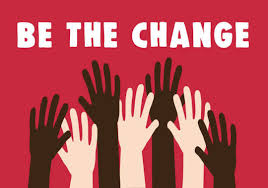Racial and Social Justice: Striving for Equity and Inclusion

Racial and Social Justice: Striving for Equity and Inclusion
Introduction
Racial and social justice are foundational principles for a fair and equitable society. These concepts encompass the eradication of racial discrimination, the promotion of equality, and the active inclusion of marginalized communities in all aspects of life. Despite significant progress over the years, systemic racism and social inequalities continue to persist, demanding ongoing efforts and innovative solutions. This article explores the importance of racial and social justice, the challenges faced, and the steps needed to create a more inclusive society.
The Importance of Racial and Social Justice
- Human Rights: Ensuring that all individuals have equal rights and opportunities, regardless of their race, ethnicity, or social background, is a fundamental human right.
- Economic Equity: Promoting racial and social justice helps in closing the economic gaps between different communities, leading to a more prosperous society for all.
- Social Cohesion: An inclusive society where everyone feels valued and respected fosters social cohesion and reduces conflicts.
- Moral and Ethical Responsibility: It is a moral imperative to address the wrongs of the past and present to build a just and equitable future.
Challenges to Achieving Racial and Social Justice
- Systemic Racism: Deeply entrenched systems and institutions that perpetuate racial inequalities through laws, policies, and practices.
- Economic Disparities: Significant wealth and income gaps between different racial and social groups, often stemming from historical injustices.
- Education Inequality: Disparities in educational resources and opportunities that disproportionately affect minority and low-income students.
- Health Disparities: Unequal access to healthcare and health outcomes among different racial and social groups.
- Criminal Justice Inequities: Racial biases in policing, sentencing, and incarceration rates that disproportionately impact communities of color.
Key Areas of Focus for Racial and Social Justice
- Policy Reform:
- Anti-Discrimination Laws: Strengthening laws to combat discrimination in all areas, including employment, housing, education, and healthcare.
- Criminal Justice Reform: Implementing reforms to address racial biases in the criminal justice system, such as ending mandatory minimum sentences and promoting restorative justice practices.
- Voting Rights: Protecting and expanding voting rights to ensure that all citizens can participate in the democratic process.
- Economic Empowerment:
- Wealth Redistribution: Policies that address economic inequalities, such as progressive taxation and universal basic income.
- Support for Minority-Owned Businesses: Providing grants, loans, and other resources to support the growth and sustainability of minority-owned businesses.
- Fair Wage Initiatives: Promoting living wage policies to ensure that all workers can earn a decent income.
- Education Equity:
- Funding Equity: Ensuring that schools in underserved communities receive adequate funding and resources.
- Inclusive Curricula: Developing curricula that reflect the diverse histories and cultures of all students.
- Access to Higher Education: Expanding access to higher education through scholarships, grants, and affirmative action programs.
- Health Equity:
- Access to Healthcare: Ensuring that all individuals have access to affordable and quality healthcare.
- Addressing Health Disparities: Implementing programs to address health disparities, such as higher rates of certain diseases in minority communities.
- Mental Health Support: Providing culturally competent mental health services to support the well-being of all communities.
- Community and Cultural Empowerment:
- Representation: Promoting diversity and representation in media, politics, and leadership positions.
- Community Development: Investing in the development of underserved communities through infrastructure, housing, and social services.
- Cultural Preservation: Supporting the preservation and celebration of the cultural heritage of all communities.
Successful Examples of Racial and Social Justice Initiatives
- Black Lives Matter: A global movement that addresses systemic racism and violence against Black people, advocating for policy changes and raising awareness about racial injustices.
- The Poor People’s Campaign: A national call for moral revival that addresses the interlocking injustices of systemic racism, poverty, ecological devastation, and the war economy.
- Indigenous Rights Movements: Efforts by indigenous communities around the world to reclaim their rights, lands, and cultural heritage.
Conclusion
Achieving racial and social justice requires a multifaceted approach that addresses systemic inequalities and promotes inclusion and equity in all areas of society. It involves policy reforms, economic empowerment, education equity, health equity, and community and cultural empowerment. By working together, policymakers, communities, and individuals can create a society where everyone is valued, respected, and given the opportunity to thrive. The journey towards racial and social justice is ongoing, but through collective effort and commitment, a more just and equitable future is possible.
Our social media presence:-
https://www.youtube.com/padindia
https://www.linkedin.com/company/padindia
https://www.facebook.com/Padvoice/
https://www.facebook.com/voiceofindiantaxpayers/
https://www.instagram.com/padindia9